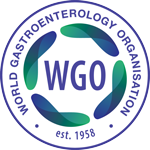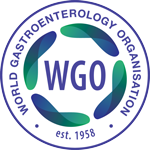Diet and Gastrointestinal Cancer – Room for Improvement
Review by Prof. Eamonn Quigley (USA)
Study Summary
Various components of diets or dietary patterns have long been suspected to increase risk for a number of gastrointestinal cancers. In this important study, Li and colleagues examined the role of diet in gastrointestinal cancer around the world and in doing so compared data from 1990 to those from 2018. The focus was on esophageal (both squamous and adenocarcinoma), gastric, liver, pancreatic and colon cancers and data were abstracted from meta-analyses as well as the Global Dietary Database, the Global Burden of Disease survey and the Cancer Incidence in Five Continents project.
In 2018, 21.5% of these GI cancers were attributed to suboptimal diets, a proportion that had remained stable since 1990. However, because of the substantial increases in incidence of liver, pancreatic and colorectal cancers over the intervening years, the total number of diet-attributable GI cancers had doubled to over 1 million. In terms of dietary contributions to individual cancers colorectal (33%) and esophageal squamous cell cancers (31%) ranked highest and pancreatic cancer lowest (3%). Looking at individual diets and individual cancers a diet exhibiting insufficient intake of non-starchy vegetables was incriminated in 13.1% of esophageal adenocarcinoma, insufficient intake of fruits and excess intake of processed meats in 16.7% and 17.8%, respectively, of esophageal squamous carcinomas and multiple dietary factors in colorectal cancer.
Not surprisingly, the absolute burden of diet-attributable cancers varied across the world with the greatest impact being observed in Central and Eastern Europe and Central Asia and the lowest in South Asia and Sub-Saharan Africa. Considerable variations between diet and cancer were also noted between individual countries. Interestingly, there was a positive correlation between the Socio-Demographic Index and national burden of diet-attributable cancer.
Commentary
There is a lot of information here. The bad news is that there were twice as many diet-attributable cancers in 2018 as 1990 because several GI cancers have become so much more common now than thirty years ago. The good news is the enormous opportunity for prevention based on dietary modification. This will not be easy and a major challenge to progress is obvious – the urbanization and “Westernization” of so much of the world with a shift to an excessive consumption of processed meats and an associated drop in intake of fruits and vegetables. It is also evident that dietary impact is much greater for some than other cancers.
Citation
Li Y, Jia X, Li C, et al. The global incident gastrointestinal cancers attributable to suboptimal diets from 1990 to 2018. Gastroenterology 2024; 167:1141-51.
View past News You Can Use commentaries

